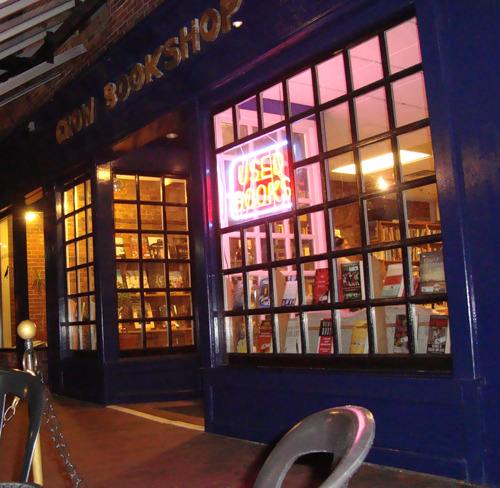I do not know what to do with my books. I don’t even know how many I have. Probably over a thousand. They sit on their prefab bookshelves, two layers deep, along my basement wall. They look fine. They testify to my learning and erudition. They show that I am not one of the thoughtless mob who spend hours and hours watching television.

Books have become very, very expensive. I know of a student at the University of Waterloo who recently spent over $900 for her course books. Is there some kind of scam going on with the universities and book publishers? Students are always told they need the latest, newest, revised edition. No effort is made to make new editions compatible with old editions, by retaining a consistent paging sequence, or by publishing addendums, or online updates.
How on earth can a laptop computer cost less than your course books? The computer requires thousands of manufactured parts from all over the globe, carefully assembled and tested, and shipped thousands of miles. Yet you can buy a new laptop for $500 or $600 nowadays. You can buy a lawnmower for $240. You can’t buy five books for less than that?

I think we need a movement. We need a group of intellectual hackers to devise an alternative to the established publishers, to write new text books and publish them on electronic readers like the Kindle. We need students to organize themselves and demand that professors adopt these new electronic books for their courses.
Their objection, of course, will be that they only want this particular book, a printed, published one, for the course. Only this book will do. Just as, in the computer world, first it was “only IBM will do” and then “only Microsoft will do”. Finally today, more and more users, including governments and corporations have discovered Linux.
What would happen if Universities supported this movement and began to require that all books be supplied in digital format and that they cost less than $20 each? Well, what would happen if they told the publishers they were no longer going to buy their inefficient, over-priced, tree-slaying compendiums? The publishers would have no choice. First, they would claim that they would be driven out of business. Then some smaller, more nimble publishers would start filling the gap. Then the big companies would buy them out and double their prices.
If there are enough hackers out there to support Linux– very efficiently, I might add– then there must be enough intellectuals, scientists, and others who would support a new “open source” text book system. In fact, isn’t Wikipedia a demonstration of this exact idea?
The Amazon electronic book reader.
It connects to Amazon through a wireless network– that is not compatible with European standards. Has the publishing industry learned anything from the music industry? Indeed they have: they appear to be just as stupid. A monthly subscription to the New York Times on Kindle– which is free, online– is $13.99. All right, so you buy a Kindle, and you decide to read five or six online news magazines or news papers, a few books, a few reference works… how long before you arrive at over $100.00 a month? And you are paying this for a technology that eliminates the publisher’s need to actually print something, on paper, and transport it to your eager little hands.
Add that to your cable bill, your phone bill, your cell bill, your iTunes bill, your movie rentals, and your CD collection… I think they’ve lost their minds. Why not do what Google, and most online newspapers have learned to do? Discretely sell some advertising in a non-intrusive way and hope to earn back the revenue through volume of hits?
[2009-11]
Apparently the State of California is now trying to do just what I describe here: it is creating digital versions of text books for high school and making them available online for free. Story here.
[2010-08-01 ]
I just read that there is a website devoted to this cause.
“The drive-through, which accounts for 60 percent of the chain’s business in the United States, was reconfigured to become more efficient….” The New York Times in an article on the resurgence of the McDonald’s Restaurant chain, January 11, 2009.
